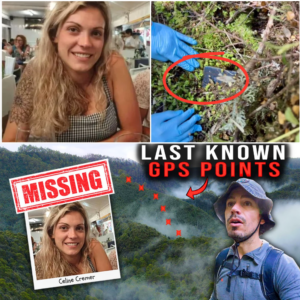In a world teetering on the edge of irreversible decline, Bill Gates, the Microsoft co-founder turned global philanthropist, has issued one of his most urgent warnings yet. Speaking at a high-level forum on global development in Seattle on October 17, 2025, Gates declared that humanity stands at a “turning point,” where the choices made in the coming years could either avert catastrophe or lock in a future of widespread suffering. “We’re at a turning point,” he emphasized, his voice steady but laced with gravity. “The world is near collapse in ways we can’t ignore anymore—poverty is rebounding, child deaths are ticking up, and the systems we’ve built to prevent pandemics are fraying. Time to act is running out, and the cost of delay is measured in lives.” This isn’t hyperbole from a tech billionaire; it’s a clarion call backed by decades of data from the Bill & Melinda Gates Foundation, which has poured billions into health, education, and equity initiatives. As geopolitical tensions rise and aid budgets shrink, Gates’ message underscores a stark reality: the progress of the last quarter-century hangs by a thread.
Gates’ alarm stems from a confluence of crises that, in his view, form a perfect storm threatening global stability. At the forefront is the resurgence of extreme poverty, a scourge many believed was on the path to eradication. In the 1990s, when the Gates Foundation first ramped up its efforts, more than a third of the world’s population lived on less than $2.15 a day. Through targeted investments in agriculture, vaccines, and financial inclusion, that figure plummeted to under 10% by 2019. Yet, the COVID-19 pandemic, compounded by conflicts in Ukraine and the Middle East, and climate shocks in Africa and Asia, has reversed those gains. World Bank projections, which Gates referenced in his address, paint a grim picture: by 2030, over 570 million people—mostly in sub-Saharan Africa—could still be trapped in extreme poverty, derailing the United Nations’ Sustainable Development Goals. “We risk locking in inequality at a planetary scale,” Gates warned, highlighting how supply chain disruptions and soaring food prices have pushed an additional 100 million people into destitution since 2020.
Child mortality, another cornerstone of Gates’ philanthropic empire, tells an equally sobering story. For 25 years, the world witnessed what he calls “miraculous” strides: annual deaths of children under five dropped from over 12 million in 1990 to about 5 million by 2021, thanks to widespread vaccination campaigns, improved sanitation, and maternal health programs. The Gates Foundation alone has helped vaccinate over a billion children, averting an estimated 150 million deaths. But now, for the first time in decades, 2025 could mark a reversal. Gates testified before the U.S. Senate earlier this year, citing data from UNICEF and the World Health Organization that shows stalled progress in low-income countries. Funding cuts to global health initiatives—exacerbated by domestic priorities in donor nations—mean diseases like malaria and measles are resurging. In his speech, Gates projected that without immediate intervention, child deaths could rise by 5-10% next year, undoing a generation’s work. “This isn’t just numbers,” he said. “It’s a betrayal of the promise we made to the world’s most vulnerable.”
The fragility of global health systems amplifies these risks, with Gates circling back to his long-standing prophecy of pandemics. In his famous 2015 TED Talk, he chided world leaders for preparing for war but not for plagues, a prescient warning realized four years later with COVID-19. Today, he estimates a 10-15% chance of another major outbreak within the next four years, driven by factors like urbanization, deforestation, and antimicrobial resistance. “We’re absolutely not ready,” Gates reiterated in a recent Wall Street Journal interview, pointing to underfunded surveillance networks and vaccine inequities. The foundation’s $912 million pledge to the Global Fund in September 2025 underscores his commitment, but he stresses that private philanthropy can’t fill the void left by governments. Rising nationalism and isolationism, from U.S. aid freezes under the Trump administration to Europe’s inward focus on migration, have eroded the multilateral cooperation that curbed HIV/AIDS and polio. Gates lamented delayed payments and mounting debts that hamstring organizations like Gavi, the Vaccine Alliance, which he co-founded.
Climate change weaves through all these threats, acting as a multiplier that Gates describes as the “ultimate inequality engine.” His 2021 book, How to Avoid a Climate Disaster, outlined a roadmap to net-zero emissions, but recent reports show the world off-track. Extreme weather—droughts in the Horn of Africa, floods in Pakistan—has displaced millions and ravaged crops, fueling hunger and migration. Gates, who has invested in green tech like low-carbon cement and precision agriculture, warns that without trillions in annual funding, these events will cascade into health crises and economic collapse. “The poor pay the highest price for a problem they didn’t create,” he noted, referencing how smallholder farmers in Africa, reliant on rain-fed agriculture, face yields dropping 20-30% due to erratic rains. Yet, amid the doom, Gates sees innovation as a lifeline: AI-driven crop modeling, drought-resistant seeds, and carbon-capture breakthroughs could bend the curve if scaled swiftly.
What sets this warning apart from Gates’ previous missives is its explicit call to action, framed not as despair but as a moral and economic imperative. He plans to give away nearly all of his $130 billion fortune within 20 years, accelerating the foundation’s shift toward high-impact bets like AI for disease detection and equitable climate adaptation. But he insists governments must step up: restoring U.S. foreign aid to 0.7% of GDP, as pledged under the UN, would yield returns of up to $20 for every dollar invested, per foundation analyses. Faith leaders, economists, and even business tycoons have echoed this, framing it as a “1% solution”—a tiny slice of budgets producing outsized global benefits. Gates shared anecdotes from his travels: a clinic in rural Malawi vaccinating 1,000 kids a day, or a solar-powered irrigation system in India boosting farmer incomes by 50%. These aren’t distant dreams; they’re proven models stifled by bureaucracy and short-sighted politics.
The geopolitical backdrop adds urgency. As 2025 unfolds, with elections in major democracies and escalating U.S.-China tensions, Gates fears a retreat from globalism. The foundation’s annual Goalkeepers Report, released last month, documented how nationalism has halved official development assistance since 2016. In Africa, where 60% of the world’s extreme poor reside, this translates to shuttered health posts and unplanted seeds. Gates recounted a conversation with a Kenyan president, who bemoaned aid volatility as “planning roulette.” Yet, he remains optimistic about youth-led movements and tech-savvy philanthropists filling gaps—think Elon Musk’s satellite internet bridging digital divides or young activists pushing for green jobs.
Critics, however, question Gates’ approach. Some environmentalists argue his tech-centric solutions overlook systemic inequities, while populists decry billionaire influence on policy. Gates acknowledges these, but counters that inaction is the real risk: “The alternative is collapse—societal, economic, ecological.” He envisions 2030 as a checkpoint: if trends hold, we’ll see the first poverty-free generation; if not, billions locked in cycles of despair.
Gates’ turning point isn’t abstract—it’s now. As he wrapped his address, he invoked the three billion people living in poverty or fragility, urging the audience: “This is their moment, and ours. Act boldly, or history will judge us harshly.” In an era of division, his voice cuts through, a reminder that shared threats demand shared resolve. Whether leaders heed it could define not just the next decade, but the century.



